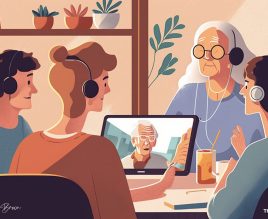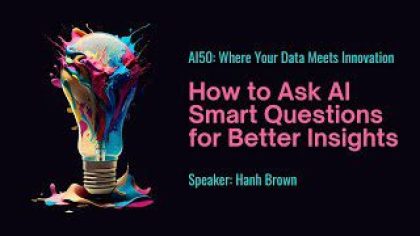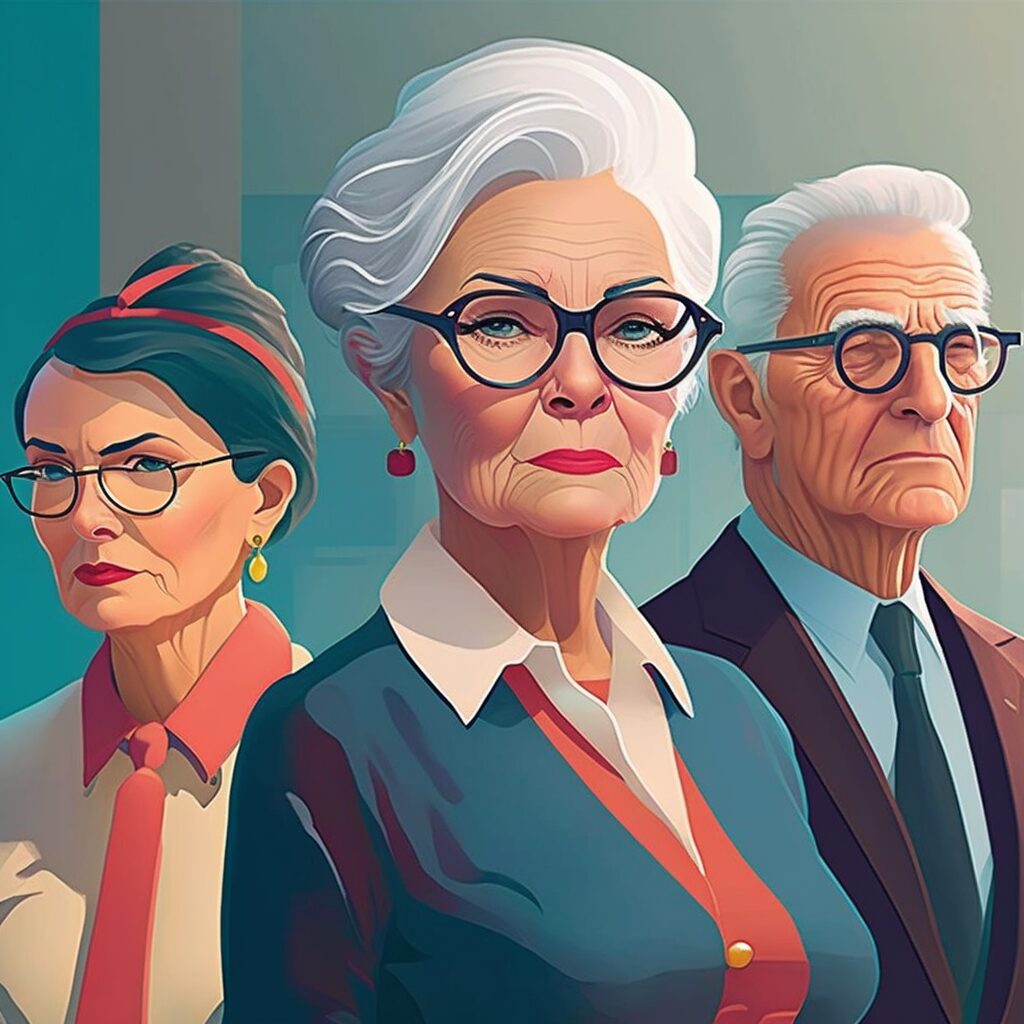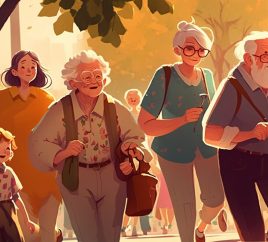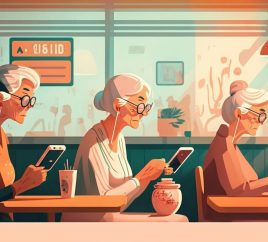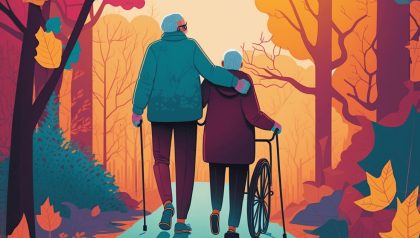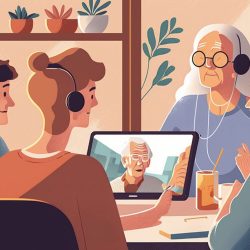Table of Contents
ToggleAs the global population continues to age, the demand for innovative solutions in senior care is steadily increasing. Technological advancements in artificial intelligence (AI) and natural language processing, such as ChatGPT, present a unique opportunity to revolutionize the senior care industry and improve the overall quality of life for the elderly. By harnessing the power of AI, caregivers and healthcare providers can offer personalized, efficient, and cost-effective solutions to support seniors in maintaining their independence, mental well-being, and physical health.
AI-powered chatbots like ChatGPT can help bridge the gap between seniors and technology, allowing them to access information, engage in meaningful conversations, and maintain social connections. Additionally, AI can assist in monitoring seniors’ health, detecting potential issues, and alerting caregivers to any concerns. Furthermore, AI-driven solutions can provide targeted and tailored cognitive stimulation, helping to keep the minds of the elderly sharp and engaged.
In this article, we will explore the various ways AI and ChatGPT can be utilized to enhance senior care, examining their potential to transform the industry and significantly improve the quality of life for our aging population. By embracing these cutting-edge technologies, we can usher in a new era of senior care that empowers the elderly and ensures they receive the support and care they deserve.
How AI Can Improve Elder Care
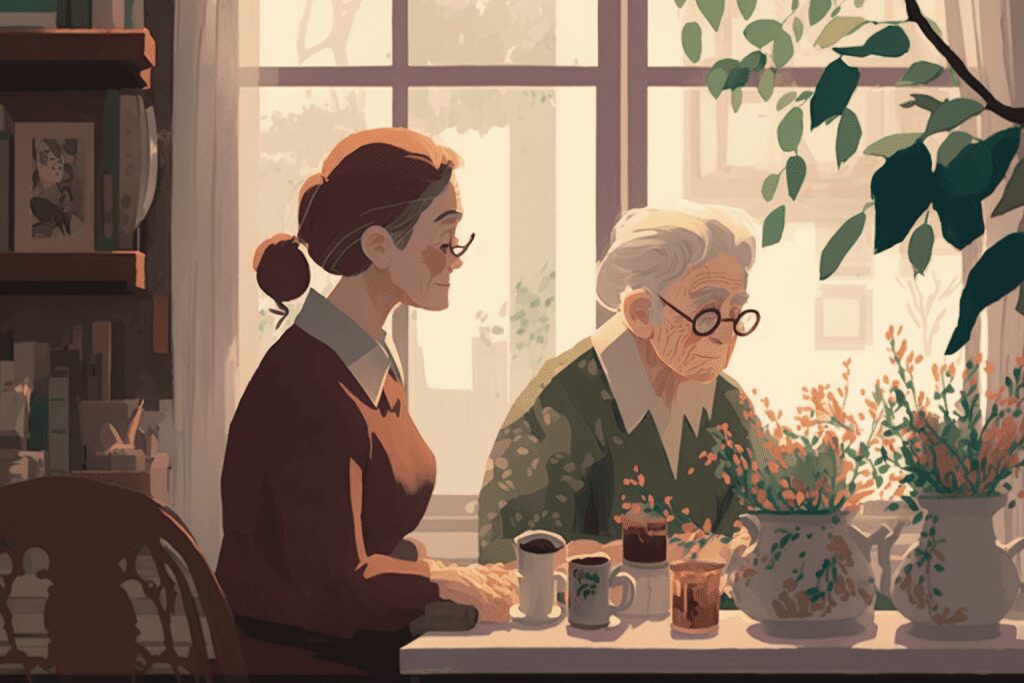
The elderly population has unique care needs that require tailored solutions. Traditional care models may fall short in addressing these needs, but AI can step up to the challenge. AI can analyze data from wearable devices, develop personalized care plans, provide companionship and social engagement, and simplify health monitoring and medication management.
Enhancing Personalized Care for the Elderly
Seniors have unique care needs that vary depending on their health conditions, preferences, and lifestyles. AI can analyze data from wearable devices, such as smartwatches, fitness trackers, and health monitors, to develop personalized care plans that cater to the individual needs of each senior. This data can provide insights into seniors’ behavior patterns, health data, and preferences, enabling AI to provide more accurate diagnoses, treatment options, and preventative measures.
Benefits of AI in Customizing Care Plans
AI can analyze seniors’ data to develop customized care plans that address their specific needs. By leveraging this data, AI can provide more accurate diagnoses, treatment options, and preventative measures. For example, AI can analyze seniors’ sleep patterns and recommend adjustments to their sleep environment or habits to improve their sleep quality. AI can also track seniors’ physical activity levels and recommend exercise routines that cater to their fitness levels and health conditions.
AI-Assisted Companionship for Seniors
Loneliness and social isolation are prevalent issues among the elderly, which can negatively impact their overall health and well-being. AI can provide companionship and social engagement through chatbots that engage seniors in conversations, share stories, or play games. These chatbots can be programmed to respond to seniors’ queries, provide emotional support, and offer entertainment options that cater to their preferences.
Reducing Social Isolation Among the Elderly with AI
AI can also connect seniors with their loved ones, caregivers, and community resources, fostering a sense of belonging and reducing social isolation. Through video calls, AI-powered chatbots, and social media platforms, seniors can stay connected with their social circles and participate in activities. For example, AI can connect seniors with local community centres that offer social events, classes, and support groups.
AI for Health Monitoring and Medication Management
Managing multiple medications and tracking health changes can be a daunting task for seniors. AI can simplify the process by automating medication reminders, tracking health data, and providing early detection of health issues.
Automated Medication Reminders and Refills
AI-powered medication management systems can provide seniors with automatic reminders to take their medications and refill prescriptions when they run out. This can reduce the risk of missed doses, medication errors, and hospitalizations. AI can also alert caregivers or healthcare providers when a senior misses a dose or experiences adverse effects from a medication.
AI-Powered Health Monitoring for Seniors
AI can monitor seniors’ health through wearable devices that track vital signs, sleep patterns, and activity levels. This information can provide early detection of health issues, enabling timely interventions and preventing complications. For example, AI can detect irregular heartbeats and notify healthcare providers or caregivers to initiate treatment.
Early Detection of Health Issues with AI-Enabled Diagnostics
AI can analyze health data and generate real-time alerts for potential health issues. This can enable seniors and their caregivers to proactively address health concerns before they escalate, improving their quality of life and reducing healthcare costs. For example, AI can analyze seniors’ blood glucose levels and recommend adjustments to their diet or medication regimen to manage their diabetes
ChatGPT as a Virtual Assistant for Senior Living
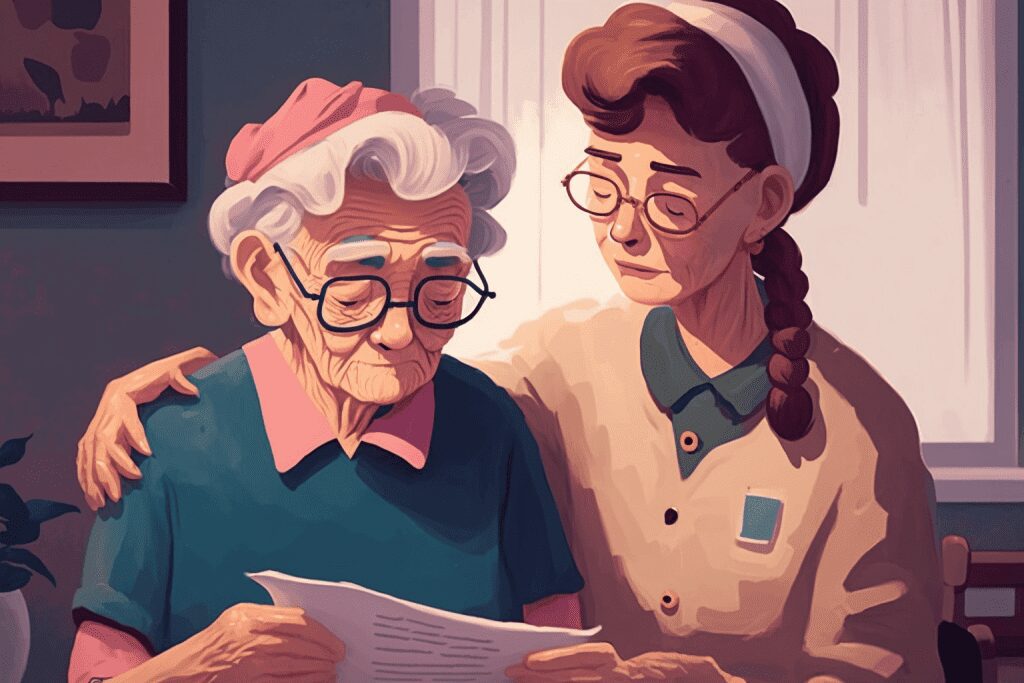
Are you tired of managing multiple tasks and responsibilities for your elderly loved ones? Do you wish you had an extra set of hands to help with daily living tasks? With ChatGPT, you can have a virtual assistant that can help seniors live more independently and comfortably.
How Chatbots Can Assist with Daily Living
From meal planning to home security, ChatGPT can assist with various daily living tasks that seniors may find challenging. Let’s explore how Chatbots can help seniors lead a more relaxed and convenient lifestyle.
ChatGPT for Meal Planning and Grocery Shopping
ChatGPT can create personalized meal plans and grocery lists based on seniors’ dietary restrictions, preferences, and health conditions. What You need to do is to properly mention in the chat GPT what you want to consider and what not. This can ensure that seniors have access to nutritious meals and snacks that promote their overall health and well-being.
Chatbots for Appointment Scheduling and Reminder Notifications
Seniors often have multiple medical appointments, social events, and other commitments that they need to keep track of. Chatbots can assist with appointment scheduling, reminder notifications, and transportation arrangements, ensuring that seniors never miss an important event.
It is exactly the same as the mean planning. Just request the Chat GPT with proper promp what you want to include, your priorities and days to complete your visits. You will love the results.
ChatGPT for Home Automation and Security
ChatGPT can also assist with home automation and security, ensuring that seniors have a safe and comfortable living environment. From controlling lights and temperature to monitoring for emergencies, ChatGPT can provide peace of mind to both seniors and their caregivers. For this, you just need to talk with Chat GPT, share accurate data, and get some amazing security tips & suggestions to consider in your plan.
Enhancing Social Interaction with ChatGPT
Loneliness and social isolation can take a toll on seniors’ mental and physical health. ChatGPT can serve as a companion, connecting seniors with their loved ones and providing them with social engagement and recreational activities. You can post your thoughts by taking a chat GPT as a co-writer. Create posts, replies, and comments and build a community with Chat GPT.
Chatbots for Companionship and Mental Health Support
ChatGPT can provide companionship and emotional support to seniors, helping to alleviate feelings of loneliness and depression. By engaging in meaningful conversations, sharing stories, and offering mental health resources, ChatGPT can contribute to seniors’ overall well-being.
Chatbots for Social Engagement and Recreational Activities
ChatGPT can also offer seniors access to recreational activities and social engagement opportunities. From games and quizzes to virtual tours and events, ChatGPT can provide seniors with new and exciting experiences that they may not have access to otherwise.
Revolutionizing Senior Care with AI and ChatGPT
As we age, our human minds and brains undergo a gradual process of deterioration, leading to an increased need for care and support. This has given rise to a growing demand for senior care services that can provide personalized attention and improve the quality of life for the elderly. While traditional care models have served us well in the past, the advent of AI and ChatGPT technology has brought about a new era of possibilities. However, as with any emerging technology, there are both benefits and challenges associated with its adoption.

The Benefits of AI in Senior Care
The potential of AI and ChatGPT in senior care is extensive and promising. Here are some of the primary advantages that these technologies can provide:
Improved Quality of Life and Independence for the Elderly
For numerous seniors, aging is associated with a loss of independence and a restricted lifestyle. AI and ChatGPT can help regain their autonomy and offer personalized care options to enhance their quality of life. By using smart home devices, wearables, and voice assistants, seniors can stay connected, manage their medications, and receive help with daily tasks. This enables them to remain in their homes longer, avoid institutionalization, and maintain control over their lives.
Reduced Healthcare Costs and Burden on Caregivers
AI and ChatGPT can present a cost-effective solution that decreases the financial strain on both seniors and their caregivers. Through remote monitoring and predictive analytics, healthcare providers can identify health problems before they worsen, reducing hospitalizations and emergency room visits. Furthermore, ChatGPT can function as a virtual assistant, offering 24/7 support to caregivers and answering questions about medications, diet, and exercise.
Enhanced Safety and Security for Seniors
Seniors are susceptible to accidents and emergencies, making their safety and security crucial. AI and ChatGPT can provide peace of mind by monitoring seniors’ activities, detecting falls, and offering emergency response services. Moreover, smart home devices can be integrated with security systems, allowing caregivers to remotely monitor their loved ones’ environment and prevent potential hazards.
Cognitive Stimulation and Social Engagement
AI and ChatGPT can also provide cognitive stimulation and social interaction, helping seniors stay mentally sharp and engaged. These technologies can offer tailored cognitive exercises, such as memory games and puzzles, to challenge seniors’ minds and help them maintain cognitive health. Additionally, ChatGPT can engage seniors in meaningful conversations, reducing feelings of isolation and loneliness.
Personalized Healthcare Recommendations
AI-driven technologies can analyze individual data to provide personalized healthcare recommendations. By considering factors such as medical history, genetic predispositions, and lifestyle habits, AI can suggest tailored interventions, including nutrition plans, exercise routines, and medication adjustments. This personalized approach can significantly improve seniors’ overall health and well-being.
Simplified Access to Healthcare Services
AI and ChatGPT can make accessing healthcare services more straightforward for seniors, particularly those with mobility issues or living in remote areas. Telemedicine platforms, powered by AI, can facilitate virtual consultations with healthcare providers, enabling seniors to receive medical advice and care without leaving their homes.
In summary, the benefits of AI and ChatGPT in senior care are manifold and impactful. By adopting these technologies, we can greatly enhance the quality of life, independence, safety, and well-being of our aging population. With continued research and development, AI and ChatGPT can revolutionize the senior care landscape and create a brighter, more supportive future for our elderly loved ones.
The Challenges of AI and ChatGPT Adoption in Senior Care

While the potential of AI and ChatGPT in senior care is clear, there are some challenges associated with their adoption. Here are some of the qualifying key considerations that need to be addressed:
Privacy and Security Concerns with AI-Assisted Care
As with any technology that collects data, there are privacy and security concerns associated with AI-assisted care. Seniors and their families need to be assured that their personal information is secure and protected from unauthorized access. To address these concerns, healthcare providers must implement robust data protection policies, secure networks, and comply with relevant regulations.
Limited Access to Technology and Digital Literacy Among the Elderly
Seniors are not always tech-savvy, and some may find it challenging to use digital devices or access the internet. This creates a digital divide, where some seniors may not be able to benefit from AI and ChatGPT technology. To address this issue, healthcare providers need to invest in training programs that teach seniors how to use these devices and provide support to those who may struggle with technology.
Ethical Considerations in AI-Enabled Decision-Making
AI and ChatGPT can make decisions on behalf of seniors, such as predicting health risks or recommending treatment plans. However, this raises ethical considerations around the accountability and transparency of these decisions. Healthcare providers must ensure that AI and ChatGPT decisions are explainable, auditable, and fair, and that seniors and their families are involved in the decision-making process.
Conclusion
In conclusion, the integration of AI and ChatGPT into senior care has the potential to revolutionize the way we support our aging population. These technologies offer a myriad of benefits, ranging from personalized care and health monitoring to fostering social connections and cognitive stimulation. By adopting AI-driven solutions, we can enhance the overall quality of life for the elderly, promoting their independence, mental well-being, and physical health.
As our global population continues to age, it is imperative that we embrace innovative solutions to address the growing needs of senior care. By leveraging the power of AI and ChatGPT, we can create a more efficient, cost-effective, and compassionate care system that caters to the unique needs of the elderly. As we move forward, it is crucial to continue researching and developing these technologies, ensuring that they are accessible, user-friendly, and ethical. In doing so, we can provide a brighter future for our seniors, empowering them to lead fulfilling, dignified, and connected lives in their golden years.
FAQs
How can AI improve senior care?
AI can improve senior care by providing personalized, cost-effective, and efficient care options. With the use of smart home devices, wearables, and voice assistants, seniors can receive assistance with daily activities, manage their medication, and stay connected. Additionally, AI can be used for remote monitoring and predictive analytics, allowing healthcare providers to identify health issues before they escalate and reducing hospitalizations and emergency room visits.
What is ChatGPT and how can it assist with senior living?
ChatGPT is an AI-powered conversational model that can assist with senior living by providing virtual assistance, answering questions about medication, diet, exercise, and providing 24/7 support to caregivers. ChatGPT can also be used to address social isolation among seniors by engaging them in meaningful conversations, providing companionship, and connecting them with others.
What are the potential benefits of using AI and ChatGPT for senior care?
The potential benefits of using AI and ChatGPT for senior care include improved quality of life and independence for the elderly, reduced healthcare costs and burden on caregivers, enhanced safety and security for seniors, and personalized, cost-effective, and efficient care options.
What are the challenges in adopting AI and chatbots for senior care?
The challenges in adopting AI and chatbots for senior care include privacy and security concerns associated with data collection, limited access to technology and digital literacy among the elderly, ethical considerations in AI-enabled decision-making, and the need to address the digital divide and ensure equitable access to care for all seniors.
How can AI and chatbots be used to address the social isolation of seniors?
AI and chatbots can be used to address the social isolation of seniors by providing virtual companionship, connecting them with others, and engaging them in meaningful conversations. By leveraging the power of technology, seniors can stay connected, maintain social connections, and combat feelings of loneliness and isolation. Additionally, virtual support groups and online communities can provide a sense of belonging and support for seniors.
References
- https://info.seniorlivinginnovationforum.com/
- https://towardsdatascience.com/
- https://www.sentinelofsafety.com/

